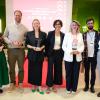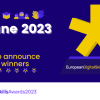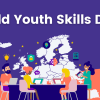Meet the winners of the European Digital Skills Awards 2025!

On 12 November in Brussels, during the EDSA25 ceremony, Henna Virkkunen, Executive Vice-President of the European Commission, Tech Sovereignty, Security and Democracy, and Roxana Mînzatu, Executive Vice-President of the European Commission, Social Rights and Skills, Quality Jobs and Preparedness, presented the European Digital Skills Award to these inspiring initiatives, which are helping Europeans gain the fundamental and advanced digital skills they need.
This year’s winners reflect the incredible diversity of digital skills efforts across Europe, from public-private partnerships and EU consortia of leading technical universities to local schools, citizen groups, and grassroots community projects. Their achievements show just how vibrant and innovative Europe’s digital skills landscape has become.
“Putting Europe at the forefront of new technologies is one of my key missions. For this to happen, enhanced digital skills for our citizens are a crucial condition. We will only succeed if we also attract more women to ICT fields. That is why I am proud to be celebrating EU-wide efforts to enhance digital skills and boost women's involvement in digital.”
- Henna Virkkunen
“New technologies, automation, AI: they are already changing how we live, how we learn, how we work. Every European should be empowered to participate in this digital society, and it starts with education, and skills. Boosting our digital skills benefits us all. These awards celebrate the best efforts across Europe to ensure we are equipped for the future, and I wholeheartedly congratulate the winners."
- Roxana Mînzatu
And the awards go to...
Digital Upskilling @ Work: EBU Academy School of AI
EBU Academy School of AI is a dynamic curriculum designed to strengthen AI literacy and upskill Europe’s public service media professionals. By fostering critical thinking, it helps maintain public trust in media in an age of disinformation.
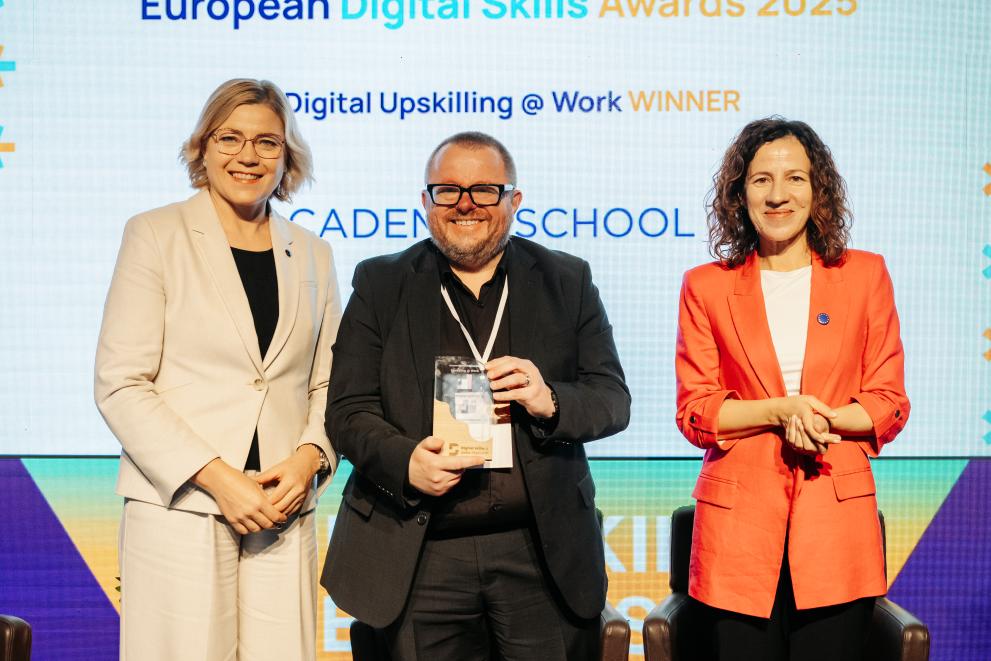
The School offers a centralized hub for AI learning, with tailored courses that evolve along with technological advancements. It delivers bespoke training for national broadcasters, supports global collaboration, and organizes events like Learning and Development Day to share strategies and tools.
Committed to inclusion and accessibility, it promotes gender balance, uses AI-powered transcription and translation, and prioritizes online learning to reduce environmental impact. The initiative combines practical skills, sustainability, and adaptability, making it a leading model in AI education for media professionals.
Digital Skills for Education: Escape Fake
Escape Fakeis an immersive augmented reality (AR) game that teaches young people media literacy using a story-driven, interactive experience. Developed by the Austrian studio Polycular with European partners, it helps players recognise fake news, online manipulation, and privacy risks.
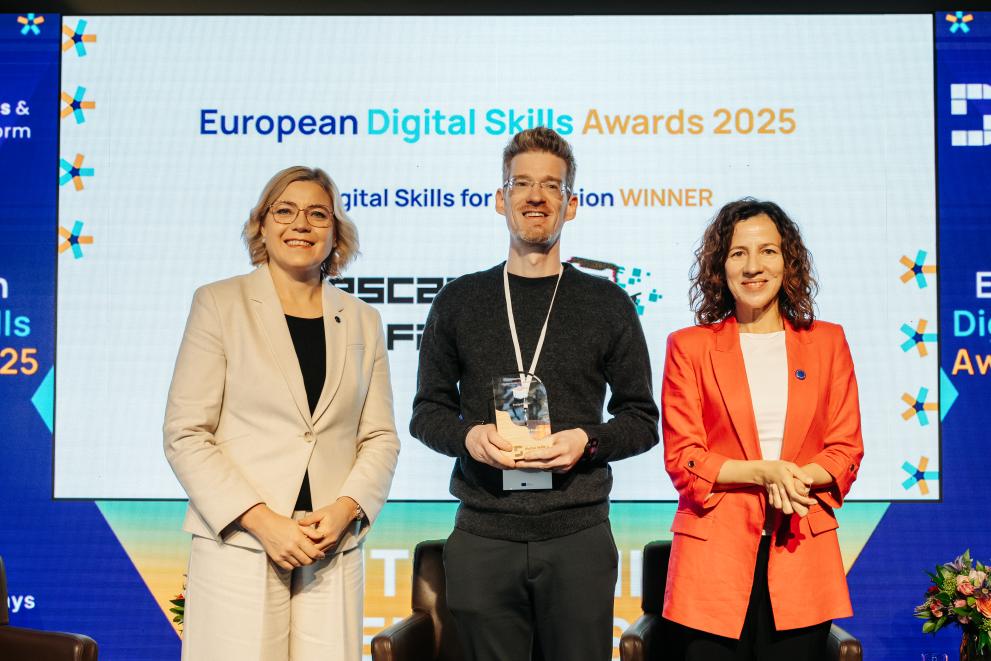
Guided by a virtual 'quantum reality hacker' named Hannah, players solve puzzles that expose disinformation, deepfakes, and spam bots. Available on smartphones and tablets, the game is complemented by teacher training, school workshops, a free educator toolkit, an online course, exhibitions, and a European Community of Practice. Co-designed with young people, Escape Fake can evolve, adding new chapters to stay relevant and authentic.
Combining immersive technology with real-world media education, Escape Fake builds practical skills in critical thinking, digital safety, and responsible media use, and offers a scalable, adaptable, and impactful model for media literacy education.
Cybersecurity Skills: Digital Angel
Digitaler Engel (“Digital Angel”) is a nationwide initiative by Deutschland sicher im Netz e.V. (DsiN), funded by the German Federal Ministry for Education, Family Affairs, Senior Citizens, Women and Youth. It promotes digital inclusion for older adults, helping them engage safely and confidently with everyday digital tools.

Through mobile outreach and personalized guidance, the project has empowered over 25,000 people in digital skills areas like online banking and messaging. Its low-threshold, trust-building approach, supported by 1,500 trained multipliers, ensures sustainability and community-based support. Having been successfully replicated in Thuringia, the project has demonstrated its scalability across regions.
By fostering intergenerational partnerships, minimizing environmental impact, and combating social isolation, Digital Angel provides a holistic, inclusive model for accessible digital transformation.
Inclusion in the Digital World: Digital Everywhere
Digital Überall (Digital Everywhere) is a nationwide Austrian workshop program coordinated by OeAD to strengthen adults’ basic digital skills, especially among older adults, rural residents, and underserved communities.

The initiative offers 5,000 free workshops delivered by over 50 adult education providers, combining individual and municipality-led bookings for broad reach and local relevance. To date, it has reached over 41,000 participants across all districts, with 94.7% reporting high satisfaction. Supported by 530 local coordinators, more than 700 municipalities have participated.
By enhancing digital skills, fostering partnerships, and introducing innovative formats, Digital Überall helps combat digital exclusion and strengthen Austria’s adult education landscape, with ongoing expansion through “Digital Überall PLUS.”
Women in ICT Careers: Women Engineers For a Day
Women Engineers for a Dayis a government-led initiative in Portugal, launched in 2017 to boost female participation in ICT and STEM fields. Coordinated by the Commission for Citizenship and Gender Equality (CIG) and INCoDe.2030, and supported by universities, municipalities, companies, and associations, it engages female students aged 12–18 through hands-on STEM activities.
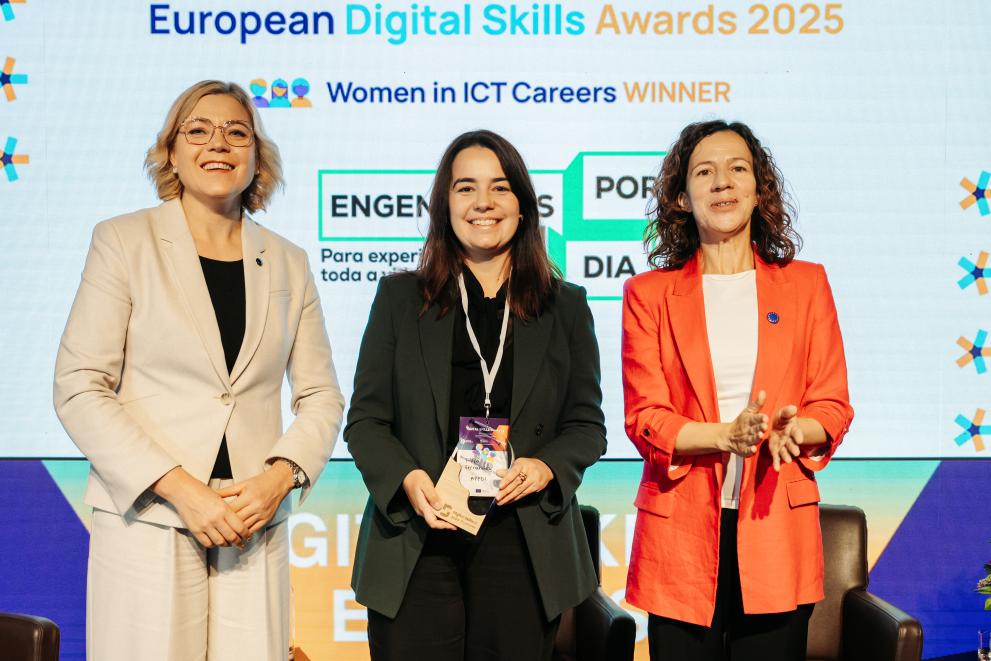
Since its launch, the program has reached about 22,000 students with over 850 activities, involving 102 partner organizations, 65 schools, and 23 higher education institutions. Integrated into national strategies for equality and digital skills, it supports long-term gender inclusion in ICT and complements broader STEM initiatives.
A huge thank you from all of us at the Digital Skills and Jobs Platform to every project, organisation, and initiative that applied this year.
Your passion for spreading digital skills across Europe is truly inspiring. Each application showed its project's creativity, dedication, and real impact on people’s lives. Your efforts make a difference, and we’re grateful for everything you do to build a stronger, more connected European digital landscape. We’re excited to see how your work will continue to shape communities across the continent.


